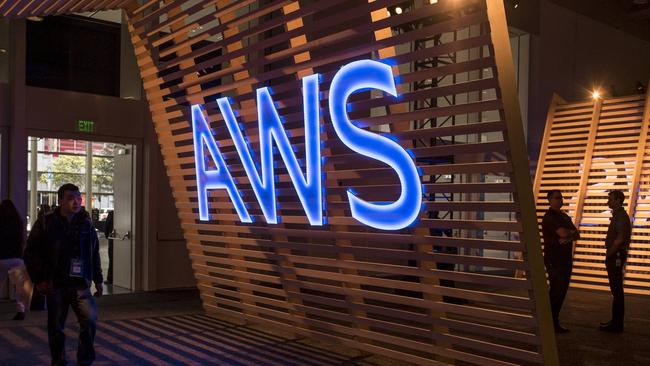Reporting season: US tech sector results point to local challenges
Results from Apple, Amazon, Alphabet, Meta and Microsoft provide some useful insight on what to expect from Australian tech names as they report this month.

Results from Apple, Amazon, Alphabet, Meta and Microsoft provide some useful insight on what to expect from Australian tech names as they report this month.
Royal Bank of Canada’s head of Australian equity research, Garry Sherriff, says macroeconomic challenges remain a focus, with the US giants reporting increased headwinds as high inflation and rising interest rates impact demand, albeit Apple said the impact of supply constraints was less than expected in the June quarter, and there are early signs of labour and supply chain constraints easing.
A prolonged undersupply of network equipment is likely to contribute to longer lead times and may delay billing for some customers, potentially affecting NextDC, Macquarie Telecom and Megaport.
After ranking Aussie tech stocks based on their ability to pass higher costs through to customers, Sherriff finds Xero, NextDC and Macquarie Telecom are largely protected from cost inflation. Still, advertising spending growth is slowing.
Meta’s advertising revenue is expected to slow again next quarter amid softening advertiser demand in response to increased economic uncertainly.
The owner of Facebook says an economic downturn will see marketers re-evaluate their budgets, compounded by “signal loss” amid Apple iOS privacy changes, and the Russia-Ukraine conflict.
Alphabet’s ad revenue growth slowed to 12 per cent year-on-year versus 22 per cent in the March quarter, with YouTube revenue down 2 per cent – likely driven by Apple’s ban on third party ad-targeting curtailing some of YouTube’s business on iOS devices. Similarly, lower ad spend hit Microsoft’s LinkedIn and search & news ad revenue by $US100m.
A sustained spending slowdown and weaker digital advertising demand contributed to Appen issuing materially weaker than expected first-half earnings metrics in preliminary results this week. Appen shares subsequently dived almost 30 per cent to a five-year low of $3.94. .
JP Morgan slashed its target price by 43 per cent to $4, while Macquarie Equities moved to an underweight rating and cut its target for Appen by 39 per cent to $3.50. The shares closed on Thursday at $4.41.
Appen’s profit margin fell more than expected amid worse than forecast revenue decline, causing cash generation to turn negative, and any improvement was contingent on an uncertain environment.
“Management’s plan to accelerate productivity improvements and margin expansion lacks detail and does not instil a high level of confidence on the ability to execute,” Macquarie says.
“Appen has stated that they are reviewing all investments in the business to accelerate productivity improvements and margin expansion, but beyond this were not able to provide any details as to how they planned to achieve this.”
Cloud growth remains strong, with sales for the top three players in the sector – Amazon Web Services, Microsoft Azure and Google Cloud Platform – up between 33 and 44 per cent year-on-year, amid a shift towards larger, long-term cloud contracts and an ongoing shift to the cloud by business customers.
Sherriff says strong cloud demand tailwinds benefit NextDC, Macquarie Telecom and Megaport. The first two are developing new multi-billion dollar data centre projects in Sydney with cloud hyperscalers as anchor tenants, and are expected to benefit from continued demand for cloud data services underpinned by hyperscaler, enterprise and government customers.
Megport operates across 400 data centres globally and is a “natural beneficiary of hyperscaler growth”, as it interconnects for enterprise/government between data centres and hyperscalers.
But while Appen was obviously a big shock to the market, Citi doesn’t expect major surprises in the Australian tech sector this reporting season after all the trading updates in recent weeks.
However, the US investment bank warns of “twin headwinds of slowing macro/demand environment and wage pressures we do think we are past the peak”.
“While valuation looks much more reasonable, we see risks as skewed to the downside as we expect consensus downgrades due to a slowing demand environment,” says Citi’s Siraj Ahmed. “That being said, margins in FY23 could surprise on the upside as companies look to reduce cash burn.”




To join the conversation, please log in. Don't have an account? Register
Join the conversation, you are commenting as Logout